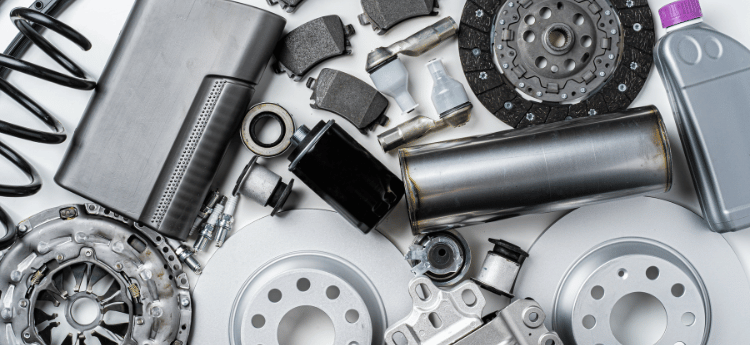When importing, taxes on foreign goods may vary depending on the product, location, or whether the operation will benefit for any tax incentive.
Taxes will not always be equal on operations. The application varies according to external factors and current regulations, but in Brazil taxes will always be charged over the value of the goods.
Let’s understand a bit more about how the main import taxes work.
Import Tax (II, in Portuguese)
What is its definition?
One of the federal taxes incurred on the entry of foreign goods is the Import Tax. The tax has an extra-fiscal role of regulating the market, with the function of controlling Brazil's trade balance increasing or decreasing the tax rates.
Political, economic, and exchange rate issues that seek to stimulate international trade practices are considered.
It applies to all foreign merchandise entering Brazil is subject to import tax.
Calculation & Tax Rate
In addition to the customs value, the cost of international transport and insurance are included in the calculation.
The incidence of the tax percentage is determined in the Common External Tariff (TEC, in Brazil). This percentage can be specified by the NCM (equivalent to the HS Code) or by specific product's characteristics (quantity, weight, measurement).
Tax over Industrialized Products (IPI, in Portuguese)
What is its definition?
Among the federal taxes the IPI stands out, because it is charged on a specific range of goods, the industrialized ones.
Besides the responsibility for payment, IPI’s role is to help regulate the market, because the tax helps controlling the origin of products and the national production.
The IPI is charged on all industrialized products of foreign origin listed in the TIPI, excluding those with "NT" (non-taxed).
Calculation & Tax Rate
Sum of the value of the goods, freight, insurance and Import Tax X IPI rate indicated in the TIPI.
The incidence of the tax percentage is defined by the TIPI, according to the NCM (HS code) classification of the products.
PIS/COFINS
What is its definition?
Among the federal taxes applied on imports are the Social Integration Program (PIS) and the Contribution for the Financing of Social Security (COFINS).
Both are social contributions that have the purpose of financing social security. Therefore, they are a Federal Tax.
The taxable timing for PIS and COFINS is the product's entry into the national territory, at the Import Declaration.
These taxes are charged on all imports of foreign products and are related to social security.
Calculation & Tax Rate
- PIS - %PIS X CIF
- COFINS - %COFINS X CIF
The incidence of the tax percentage differs according to the NCM classification of the products.
It's worth emphasizing the importance of always consulting the official rates according to each NCM, since Brazilian legislation may bring different rates depending on the product.
Tax over Circulation of Goods and Services (ICMS)
What is its definition?
ICMS is a state tax that is charged on the movement of goods and services in general, including the most varied products and segments. It is applied both to imported goods and national ones.
The taxable timing is the customs clearance of the goods. As mentioned, this tax is charged on transactions involving the circulation of goods and the provision of interstate and intercity transport services.
Calculation & Tax Rate
The calculation of the ICMS is more complex than other taxes:
CIF + II + IPI + PIS + COFINS
This sum must be divided by (1 - ICMS %) and then multiplied by the ICMS %.
It varies according to the states; can be between 7% and 35%, depending on the location.
WM has a tax incentive that lowers the ICMS rate up to 4%; each situation must be analyzed individually.
Ex-Tariff
What is its definition?
Ex-Tariff is the subsidy granted by the Brazilian Government that allows the reduction of Import Tax in operations involving capital goods (as known as BK) and telecommunications goods (as known as BIT) in cases when there is no equivalent or sufficient national production to meet domestic demand for the product.
Agreement 101/97
After undergoing a series of updates, the Agreement 101/97 established the ICMS exemption in operations with photovoltaic equipment and its components.
The agreement guarantees exemption in the products described below:
III – solar water heaters – NCM 8419.12.00;
IX – photovoltaic cells not mounted in modules or panels – NCM 8541.42.10 and 8541.42.20;
X – photovoltaic cells assembled in modules or panels – NCM 8541.43.00 – Ex 01 – Solar Cells.
Until the present date (May/23), Photovoltaic Modules under NCM 8541.43.00 are exempt from ICMS according to Agreement 101/97 and exemption from IPI according to EX 01.
The equipment, however, is subject to other taxes, as shown in the table below:
| Current II | Normal II | Mercosur | Normal IPI | PIS/Pasep | Cofins | ICMS |
|---|---|---|---|---|---|---|
| 6 | 9,6 | 0 | 6,5 | 2,1 | 9,65 | TN |
In cases when the modules have Ex-Tariffs, the Import Tax rate becomes 0% or 2%.
Taxes can be many and they for sure have different particularities. WM is the first trading company in Brazil certified on ISO 9001, that we keep since 2010. We take care of the entire process, delivering transparency, control and a 360º overview of the entire operation.
WM has more than 19 years of experience in International Trade. We are always your best choice in imports!
Do you have any projects in mind? Contact us.
Quem é a WM?
Com 20 anos de experiência, realizamos operações de importação otimizadas encontrando oportunidades tributárias para reduzir as alíquotas de ICMS e desenhando projetos logísticos otimizados.
Somos ágeis na liberação aduaneira nas operações por Conta e Ordem e por Encomenda
com expertise para diferentes segmentos.
Último Post
Categorias
A WM
Conteúdos
Contato
Acesso
Simplifique suas importações aqui.
Simplifique suas importações aqui.
Copyright 2022 - WM Comercial Atacadista LTDA - 06.194.675/0001-03
By Surfe Digital





